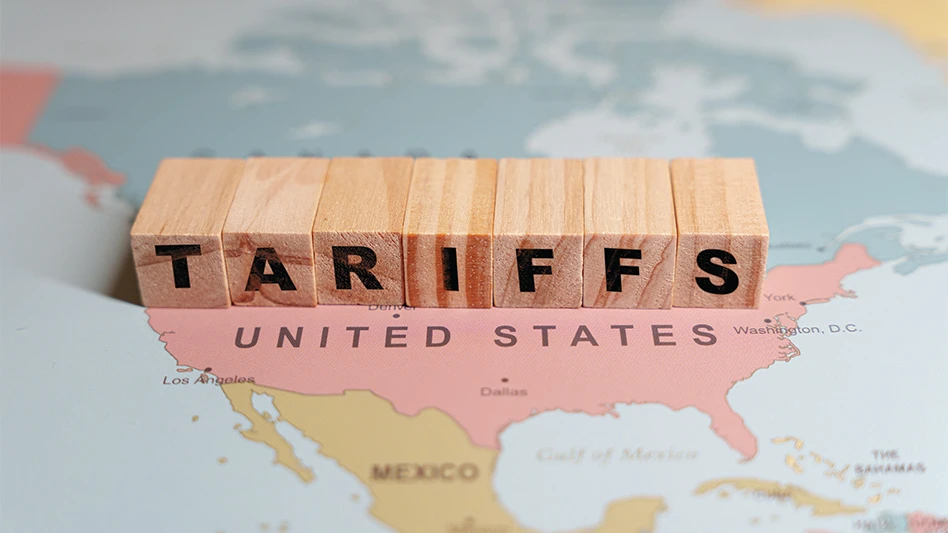
Rokas | stock.adobe.com
President Donald Trump and his administration have levied tariffs on the United States’ three largest trade partners in Canada, Mexico and China, covering a wide variety of imported goods.
While the administration imposed 25 percent tariffs on Canadian and Mexican imports, it also increased tariffs on Chinese products from 10 percent to 20 percent. Since the taxes went into effect at midnight March 4, China has announced retaliatory tariffs of up to 15 percent on various U.S. exports, while Canadian Prime Minister Justin Trudeau has announced 25 percent tariffs on $20.5 billion in U.S. goods that will increase to $85 billion over the next three weeks unless the U.S. changes course. Mexico plans to announce a response March 9.
RELATED: US plastic scrap imports reached record high in 2024
Plastics are one of many U.S. industries that could be affected by a potential trade war, and the Washington-based Plastics Industry Association (PLASTICS) is sharing its concern over the situation. In a statement, PLASTICS President and CEO Matt Seaholm urges trade policies that strengthen U.S. manufacturing.
“The plastics industry continues to recognize the importance of securing our borders and combating illegal drug trafficking to protect American communities and eradicate fentanyl from our society,” Seaholm says. “A strong and secure nation is fundamental to economic growth and industrial stability.
“PLASTICS remains deeply concerned about the tariffs on Canada, Mexico and China and their impact on U.S. plastics manufacturing and jobs. While we understand President Trump’s rationale, a competitive industry depends on policies that protect American manufacturing while ensuring stable supply chains. These tariffs will disrupt the movement of essential machines, products and materials that keep American manufacturers running across sectors like healthcare, consumer products and automotive.”
Seaholm adds that the plastics industry is a cornerstone of American manufacturing and daily life.
“We know that a strategic, measured approach to trade is critical to strengthening—not harming—the U.S. economy. We urge policymakers to support balance trade policies that enhance U.S. competitiveness, reinforce supply chains and drive continued innovation,” he says.
PLASTICS notes that in 2023, U.S. plastics exports totaled $74.2 billion, exceeding imports of $73.3 billion and resulting in a $958 million trade surplus. The organization says this “strength” underscores the industry’s global leadership. However, it says new tariffs on key trading partners threaten supply chains, increase costs and risk eroding this advantage, and to sustain growth and innovation, trade policies need to bolster—not hinder—U.S. plastics manufacturing and economic leadership.
Latest from Recycling Today
- Massive Chinese steelmaking rebound recorded in March
- LME looks into sustainable metal pricing
- OnePlanet Solar Recycling closes $7M seed financing round
- AMCS launches AMCS Platform Spring 2025 update
- Cyclic Materials to build rare earth recycling facility in Mesa, Arizona
- Ecobat’s Seculene product earns recognition for flame-retardant properties
- IWS’ newest MRF is part of its broader strategy to modernize waste management infrastructure
- PCA reports profitable Q1





